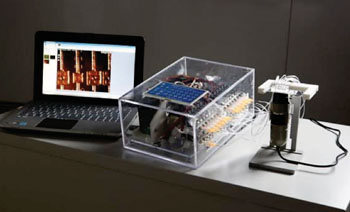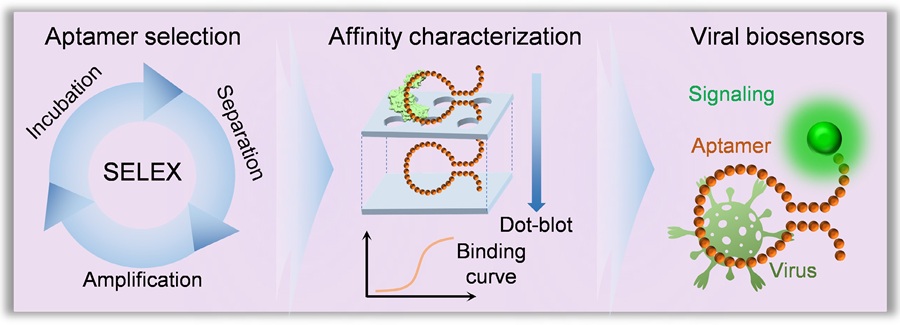Portable Device Developed for Rapid Highly Sensitive Diagnostics
By LabMedica International staff writers
Posted on 07 Mar 2016
A low-cost and portable microfluidic diagnostic device has been developed for remote regions with limited health facilities experiencing an epidemic, which need portable diagnostic equipment that functions outside the hospital.Posted on 07 Mar 2016
Over the past several years, microfluidic devices have shown extraordinary potential in the area of diagnostic and most are composed of silicone rubber with minuscule channels the width of a hair. These microfluidic devices can rapidly detect a number of different biomarkers in very small quantities of blood.

Image: The Digital-Analog Microfluidic Platform for Patient-Centric Multiplexed Biomarker Diagnostics of Ultralow Volume Samples (Photo courtesy of Alban Kakulya).
Bioengineers at the Ecole Polytechnique Fédérale de Lausanne (Switzerland) have engineered a portable device that runs on battery power and is completely self-sustained. It operates with inexpensive microscopes and provides very high levels of accuracy and detection. The biomarkers are usually enzymes, proteins, hormones or metabolites and the concentration of these molecules in the blood provides precise information on the patient's health condition. The multiplexed digital-analog microfluidic platform was able to rapidly and with high sensitivity detect three to four biomarkers in quadruplicate in 16 independent and isolated microfluidic unit cells requiring only a single 5 μL sample.
The scientists comprehensively characterized the platform by performing single enzyme and digital immunoassays, achieving single molecule detection. Initial testing has been successfully carried out on a sample containing anti-Ebola antibodies, which indicate the presence of the virus in both symptomatic and asymptomatic patients. The team detected anti-Ebola immunoglobulin G (IgG) in ultralow volume whole blood samples to levels of 100 pM in a multiplexed assay format. The device could potentially work with a large number of other protein biomarkers and molecules.
The device is unique in that it is composed of both analog and digital detection mechanisms, while conventional devices hitherto only integrated one or the other. Digital detection is highly sensitive and can detect the presence of a single biomarker. However, it is less effective when the concentration of biomarkers is too high, due to signal saturation. Analog measurements, on the other hand, function best at higher biomarker concentrations. Using these two detection mechanisms simultaneously, the composition of a drop of blood can be thoroughly analyzed in a short amount of time. The analysis provides precious medical information: it could help doctors make an early diagnosis or determine the stage of a disease.
Francesco Piraino, PhD, the lead author of the study, said, “The platform will lead the development of new kinds of tests to meet the increasing demand for on-site diagnostic testing. It will prove very useful for medical staff working in resource-limited regions. The device could, for example, be used to monitor endemic, epidemic, and pandemic disease outbreaks.” The study was published on January 12, 2016, in the journal ACS Nano.
Related Links:
Ecole Polytechnique Fédérale de Lausanne













